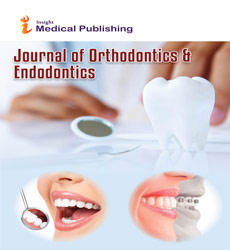Abstract
Effect of major connector design, and numbers of guide plates and rests on the fit of cobalt-chromium partial denture frameworks on initial clinical insertion: A retrospective analysis of connector design
Background: Achievement of adequate fit of Co-Cr (cobalt-chromium) frameworks is an important requirement in PRDP (partial removable dental prostheses) treatment for which current evidence on the clinical factors influencing such fit is insufficient.
Objectives: The purpose of this investigation was to retrospectively evaluate the influence of major connector design, and numbers of guide plates and occlusal/incisal rests on the number of fabricated frameworks needed until the realization of clinically adequate fit of PRDP Co-Cr frameworks.
Materials & Method: Electronic case records of 100 partially dentate patients treated with Co-Cr PRDPs in single or both arches, by undergraduate dental students, were examined, and relevant data recorded by three examiners. The relationship between the three PRDP design features with the number of frameworks that were required to be made in each case were statistically analysed by analysis of variance (ANOVA) and Post hoc Tukey tests .
Results: Data were derived from 128 (53 maxillary and 75 mandibular) records of the treated partially edentulous arches. The major connector design, and numbers of guide plates and of rests were found not to be significantly correlated with the number of framework fabrication attempts, for both the arches combined, or when arches were considered independently (P greater than 0.05).
Conclusions: In the present sample none of the component features of PRDP frameworks that were tested were associated with the fit of the frameworks, which suggests that other variables in the fabrication process of PRDP frameworks need investigating in relation to their accuracy of fit.
Clinical Significance: The design variations of Co-Cr partial denture frameworks do not affect the clinical fit acceptability.
Author(s):
Mirza Rustum Baig
Abstract | PDF
Share this

Google scholar citation report
Citations : 265
Journal of Orthodontics & Endodontics received 265 citations as per google scholar report
Abstracted/Indexed in
- Google Scholar
- China National Knowledge Infrastructure (CNKI)
- Cosmos IF
- Directory of Research Journal Indexing (DRJI)
- WorldCat
- Geneva Foundation for Medical Education and Research
- Secret Search Engine Labs
- Euro Pub
Open Access Journals
- Aquaculture & Veterinary Science
- Chemistry & Chemical Sciences
- Clinical Sciences
- Engineering
- General Science
- Genetics & Molecular Biology
- Health Care & Nursing
- Immunology & Microbiology
- Materials Science
- Mathematics & Physics
- Medical Sciences
- Neurology & Psychiatry
- Oncology & Cancer Science
- Pharmaceutical Sciences

